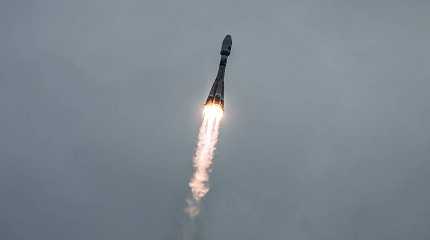
MOSCOW, August 13. /TASS/: Scientific instruments were activated for the first time aboard Russia’s Luna-25 automatic station currently on its pathway to the Moon, the State Space Corporation Roscosmos announced on Sunday.
"Today the scientific equipment developed by the Space Research Institute of the Russian Academy of Sciences was activated for the first time in the conditions of the space flight. The service telemetric data from all the devices showed their normal operation," Roscosmos said.
As a result, the first measurement data during the flight to the Moon was obtained and a research team began to process it, it said.
"The Luna-25 automatic station created by the Lavochkin Research and Production Association (part of the state corporation Roscosmos) continues its flight to the Earth’s natural satellite. All of the automatic station’s systems are operating in normal mode, communications are stable and the energy balance is positive," Roscosmos stressed.
A Soyuz-2.1b carrier rocket with the Luna-25 automatic station blasted off from the Vostochny spaceport in the Russian Far East at 2:10 a.m. Moscow time on August 11. The automatic probe is set to enter the lunar orbit on August 16 and make a soft landing on the Moon on August 21.
The Luna-25 mission aims to test a soft landing on the surface of the Earth’s natural satellite. The automatic station can become the first mission to land on the Moon’s South Pole. The station will study the internal structure and explore natural resources, including water, and will also study the impact of cosmic rays and electromagnetic radiation on the Moon’s surface.
Several video cameras are installed aboard the Luna-25 automatic station. They will record a time-lapse of the landing, a panorama of the Earth’s natural satellite in the HDR format and settling dust for its study. The Luna-25 will make a programmed video-recording and take photos of the Moon on a command from Earth.




